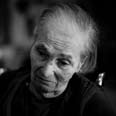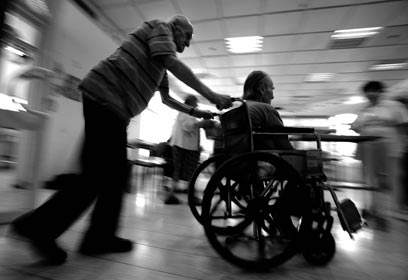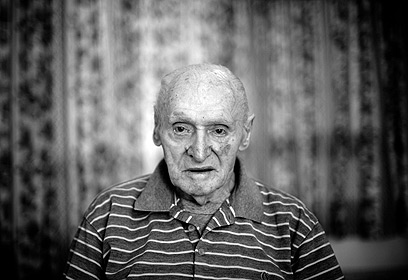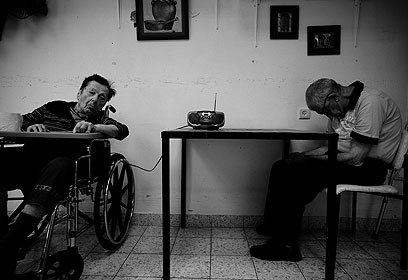
Living on the edge of Israeli society
Photojournalist Gili Yaari documents life in mental health center for Holocaust survivors
Over the years they immigrated to Israel, tried to integrate into the Israeli society and build their new lives but they were driven insane by their childhood experiences, and instead, they ended up in mental institutions.

Living testimony of the horror. Shaar Menashe mental health center (Photo: Gili Yaari)
Most of the patients at Shaar Menashe never started a family and throughout the years, they moved from one mental institution to another. For decades they lived at the edge of Israeli society without any capability of living a normal life.
Because of their advanced age, many of them need nursing treatment. Sixty-five years later they live the horror and inferno as if they happened yesterday. They survived the war, but did they really survive?

Hungarian-born Holocaust survivor Arieh Bleier, who survived Mauthausen concentration camp in Austria (Photo: Gili Yaari)
They are hearing voices, suffering from nightmares, confusing illusions and reality, spending most of the day staring into the distance while sucking a single cigarette every hour.
The number of Holocaust survivors at Shaar Menashe declines each year. Each of them carries his or her life story and is a living testimony of the horrors he has experienced.

Living horror as if it happened yesterday (Photo: Gili Yaari)
There are an estimated 200,000 Holocaust survivors living in Israel today. It is estimated that about 10% of them need mental treatment. Most of them don't get it.
The story of the Holocaust survivors at Shaar Menashe mental hospital is the story of many other Holocaust survivors. Even those who managed to integrate into society and build new lives carry deep mental scars which can never be healed.
Personal statement
As a second generation Holocaust survivor, I grew up in what I used to think of as a “normal” house. My parents managed to raise a family, worked for their living and integrated into society. Their parents lost most of their families in the Holocaust.
As many Israelis, only when I grew up did I understand that I was actually raised in a house where there was no happiness, where joy was illegitimate, where the driving forces were fear and survival.
During my work on this project I felt again and again as if I was documenting my own family knowing that all that separates between them and this place is that thin fragile borderline between sanity and insanity...
Click here to see more of Gili Yaari's work










